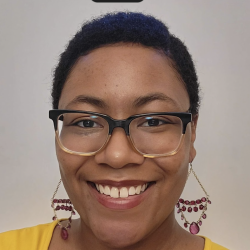
Anti-Oppressive Therapy with Queer Clients
As therapists, we value providing our clients with compassionate care and creating a space where they are accepted and supported as they navigate their healing journeys. To effectively care for our clients, we must adopt an anti-oppressive approach to therapy and address the ways that our clients are impacted by systemic oppression. It is especially important to use anti-oppressive therapy with queer clients to address how those clients are marginalized by oppressive forces like cisheteropatriarchy, white supremacy, capitalism, and colonialism. As the mental health system and our therapeutic modalities were created within systems of oppression, were not typically made with the needs of queer and trans clients in mind, and often cause them harm, it is also important that we assess how oppressive dynamics show up in our therapeutic work and that we modify the ways we engage with our systems, our interventions, and our therapeutic relationships as needed. Below, you will find tips that may be useful for mental health professionals interested in learning about anti-oppressive therapy with queer clients.
Why Anti-Oppressive Therapy?
We unfortunately live in a world where oppression is deeply pervasive. Oppression touches every aspect of our society from our larger political systems to our mundane interpersonal interactions, marginalizing countless people on the basis of their social identities. To help our clients work through the various challenges they face in their lives, we must look at the roots of those challenges, thus taking a radical approach to therapy. By understanding how structural oppression impacts queer and trans clients, we are better able to help them tap into their strengths and support them on their journeys towards self-healing. It would not be enough for us to simply acknowledge the stress, grief, sadness, and anxiety our queer and trans clients experience without addressing the ways that oppression often informs those experiences. Radical, anti-oppressive therapy helps us to move beyond surface-level, individualistic perspectives of our clients' challenges and learn to acknowledge and address the deep, systemic roots of those challenges. In doing so, we are better able to help our clients develop a dynamic understanding of themselves and their experiences and help them make more deeply informed decisions about how they want to live their lives.
In the Therapeutic Space
Affirming
One way of using anti-oppressive therapy with queer clients is to provide our clients care that is deeply accepting and affirming of who they are. One simple yet essential way of affirming our clients is by honoring their chosen names and their pronouns. Not only is it important to refer to them by the names and pronouns that they express wanting to be referred to with, but it's also important that our documentation reflects those names and pronouns as much as possible. Though many of us may feel the constraints of organizational policies, prioritizing anti-oppressive therapy with queer clients demands that we push against those standards and represent our clients in our documentation and communication in a way that respects who they are and not rigidly holding to their legal name and assigned sex at birth. The following are some of the ways we can strive to honor our queer and trans clients’ identities:
Using the client’s chosen name when communicating with them and when discussing them in supervision
Using the client’s pronouns when discussing them in supervision and in your notes
Making sure to use the client’s pronouns correctly if the client uses multiple pronouns e.g. using both he and they pronouns for a client whose pronouns are he/they
Including the client’s chosen name on their file
Discussing expectations for documentation of clients’ legal name, chosen names, sex, and gender with your supervisor
Affirming our queer and trans clients also means being flexible with how their names, pronouns, gender identity, and gender expression may change over time. Holding space to honor our queer and trans clients' journeys with their gender is critical for fostering an open, accepting, and loving therapeutic space.
Exploring
Many of our queer and trans clients may express wanting to come to therapy to hold space for their gender exploration. Radically engaging in anti-oppressive therapy with queer clients means that our work includes supporting our clients as they come to understand what gender means for them. The therapeutic space should serve as an open, welcoming environment for queer and trans clients to try out various expressions of their gender. Some ways we might support our queer and trans clients’ exploration include the following:
Normalize and validate curiosity, flexibility, and uncertainty about one's gender identity and expression
Help our clients identify and process how they feel about various aspects of their gender identity and gender expression
Offer encouragement for our clients as they explore how they feel when they are referred to with their pronouns, given name, or chosen name
Encourage our clients to imagine what names or pronouns might feel more affirming and try using those names and pronouns in session
Help our clients identify how they might want to share their name and pronouns with others and to rehearse that process with them
Offer clients the space to explore their gender expression through various aesthetics
Provide relevant, gender-affirming resources or referrals to services for clients who want to make changes to their IDs or other documentation, find affordable spaces for accessing clothes and other aesthetic items, start hormone replacement therapy, or find other ways of supporting their journey with their gender
Naming the Impact of Oppression
When using anti-oppressive therapy with queer clients, it is important to actively and directly name how oppression is impacting our queer and trans clients. In some instances, this may look like exploring how our queer and trans clients experience internalized queerphobia and transphobia. As beings existing within systems of oppression, we all have to grapple with how oppressive systems impact our self-perceptions, and how we relate to ourselves and the world around us. Internalized queerphobia and transphobia might look like overly rigid and gendered expectations for the roles they inhabit, for how they present themselves to the world, or for the types of relationships they have. Those expectations would be rooted in the norms of the gender binary and would likely be incompatible with our queer and trans clients’ authentic selves. Experiences of internalized oppression can deeply impact our queer and trans clients’ affective experiences, their relationship to their identities, and their interpersonal relationships. Naming the internalized forms of oppression our queer and trans clients experience and naming how that oppression impacts them are important steps for engaging radical, anti-oppressive therapy with queer clients.
Outside of naming how our queer and trans clients are internally impacted by oppression, it is important to name how external interactions relate to their experience of oppression. Many queer and trans clients may routinely experience microaggressions where they are misgendered, deadnamed, or otherwise not recognized and respected as who they are, and they may experience many other forms of discrimination from entities at various levels of our society. This discrimination often impacts our queer and trans clients’ material circumstances, infringing upon their access to housing, healthcare, and other necessities. Bringing an awareness of these issues into the therapeutic space helps us to understand what steps we can explore to help empower our clients to address the various ways that systems of oppression impact their lives.
Addressing the Impact of Oppression
In our work as therapists, there are many ways that we can support our queer and trans clients and help them address the ways that oppression impacts them. In order to engage with anti-oppressive therapy with queer clients, we should be offering transparency about our organizations' policies related to how their names are recorded, our roles as therapists, and the power dynamics of our therapeutic relationships, and we can explore and process with our clients their experiences with these factors. We are also able to use a variety of therapeutic modalities to help our queer and trans clients process the impact of oppression. For example, Acceptance and Commitment Therapy can be used for helping our queer and trans clients explore their values and learn to engage in action that is in alignment with those values. Somatic Therapy can be useful for helping our queer and trans clients explore how to process the stress and trauma that oppression causes and the ways that those traumas directly impact the body. Whether these or other modalities are used, it is important to keep in mind that our role as anti-oppressive therapists is not to problematize the reactions our clients have to the oppression they experience but to acknowledge how the oppression itself is the problem and help our clients discover how they want to shape their relation to that oppression.
Outside of individual therapy work, community resources are also important for addressing how oppression impacts our queer and trans clients. Community is important for helping our clients find deeper support, care, and connection with people whose experiences are akin to theirs. Low cost services such as support groups or other free or low-cost local community centers and resources are also important for helping to meet our queer and trans clients’ needs. By offering referrals to such resources, we are better able to help our clients find security amid the precarity and harm of the oppression that they face.
Outside of the Therapeutic Space
The work of an anti-oppressive therapist does not only occur in our offices. To truly incorporate radical, anti-oppression into our work, we must incorporate it within ourselves. Understanding our own relationship to the gender binary is an important step for learning how to engage anti-oppressive therapy with queer clients. We can and should all explore our relationship to our own gender, our understanding of what our gender means to us, and the ways we experience our gender. This exploration might start with simply asking ourselves questions about what our gender identity is, how we came to understand that as our gender identity, and what experiences have been affirming or challenging for our relationship to our gender identity. Though these questions may feel foreign to some therapists, taking part in this type of self-exploration is important for helping us to be able to actively and purposefully engage who we are in the therapeutic space. This exploration of our own gender experience helps us to understand how we uphold or challenge the gender binary, cisheterosexism, and other forms of oppression. Whether intentionally or unintentionally, we all engage with systems of oppression in some way. By engaging in this anti-oppressive work, we become better equipped to help our clients experience the self-discovery, healing, and growth that therapy can offer them, and we open ourselves up to the potential to expand as therapists and as community members who are learning how to join in on efforts to dismantle the systems of oppression that deeply impact our queer and trans clients.
















